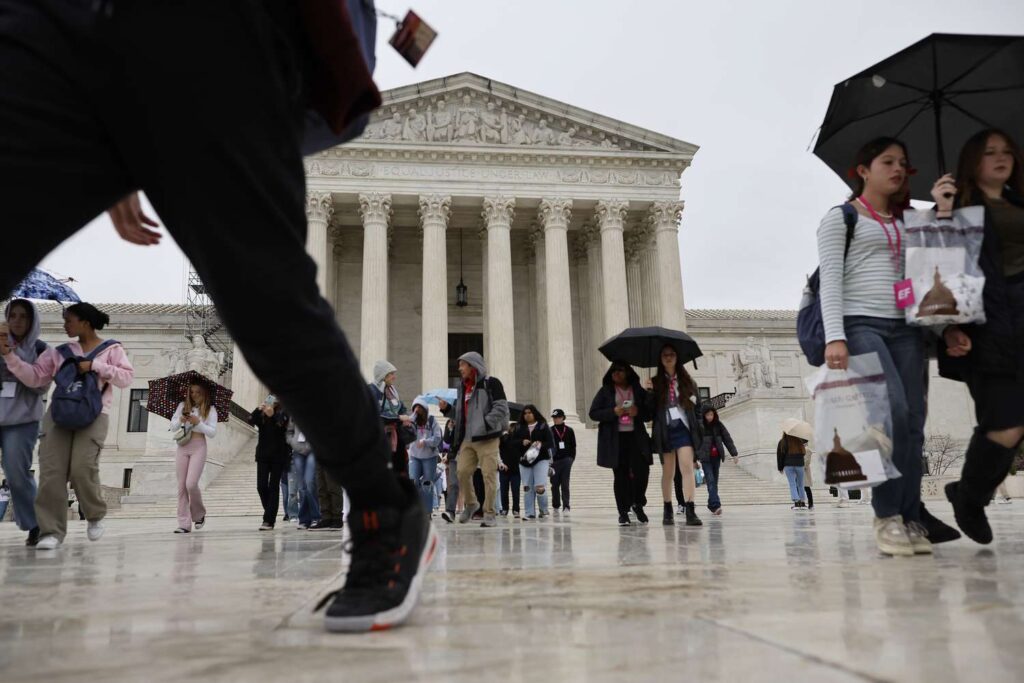The Supreme Court has ruled in favor of cryptocurrency trading platform Coinbase (COIN) in a dispute over a class-action lawsuit, in a decision that strengthens the right of businesses to resolve disputes via arbitration instead of through lawsuits. Coinbase shares rose about 4% after the decision.
Key Takeaways
- The Supreme Court sided with Coinbase in a matter pertaining to a customer class-action lawsuit against the crypto-firm.
- A Coinbase customer sued the firm after scammers accessed his account and stole his funds.
- Coinbase asked a federal district court to send the dispute to arbitration because there was an arbitration clause in the platform’s user agreement, but was denied.
- The Supreme Court ruled that the suit must be put on hold while Coinbase appealed the decision of a federal district court against arbitration.
At issue in the 5-4 decision, released Friday, was whether a class-action lawsuit could proceed while an appeals court decided whether to put the dispute in the hands of an arbitrator, as Coinbase had asked. The Supreme Court ruled that the suit must be put on hold while Coinbase appealed the decision of a federal district court against arbitration.
Why Does This Decision Matter?
In siding with Coinbase, the court bolstered the use of arbitration over lawsuits.
Companies prefer arbitration because resolving disputes that way is less costly and can prevent mammoth class-action lawsuits. Companies have increasingly included clauses in user contracts that say that customers or employees must use arbitration instead of suing to resolve grievances.
Consumer advocacy groups say forced arbitration favors businesses over customers, and deprives consumers of their day in court.
“If the district court could move forward with pre-trial and trial proceedings while the appeal on arbitrability was ongoing, then many of the asserted benefits of arbitration (efficiency, less expense, less intrusive discovery, and the like) would be irretrievably lost—even if the court of appeals later concluded that the case actually had belonged in arbitration all along,” Justice Brett Kavanaugh wrote in the majority opinion.
Abraham Bielski, representing customers, had sued Coinbase, alleging that the company did not respond or replace his money when scammers fraudulently accessed his account and stole $30,000.
Coinbase asked the court to send the dispute to arbitration because there was an arbitration clause in the platform’s user agreement, but was denied. Bielski wanted the lawsuit to proceed while Coinbase appealed that decision to higher courts, and Coinbase wanted it paused.


